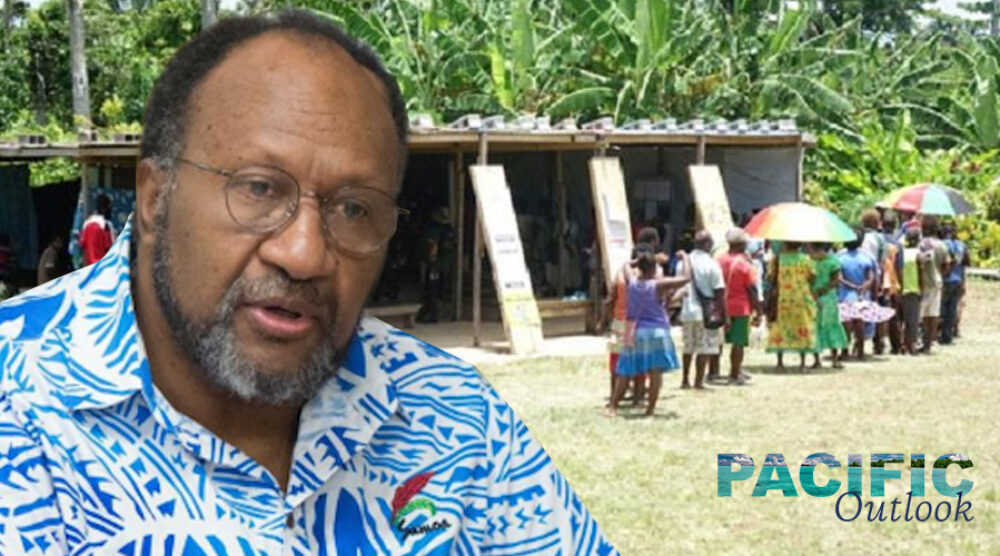Into the already febrile political chatter of Port Vila in this election year came the announcement on Wednesday that several outgoing MPs may face bribery charges. There are also reports that the outgoing Prime Minister, Charlot Salwai Tabismasmas may face a charge of perjury. The Vanuatu Daily Post has reported that the court will hear a preliminary inquiry on 25th February in relation to the bribery charges to determine if there is sufficient evidence to justify going to trial. Salwai claims that despite receiving a summons, he has no knowledge of the charges against him.
The country goes to elections on 19th March. The electoral authorities are currently receiving nominations for candidates for vetting. The candidate list will be announced on 2nd March, which is when the campaign period officially begins. There is every chance that all of the people who have been charged in this bribery case will also be contesting in the elections.
The charges originate with complaints laid last year by then-leader of the Opposition, Ishmael Kalsakau. He is also a former Attorney-General (a public service position in Vanuatu). It hinges on Salwai’s offering ‘Parliamentary Secretary’ positions to backbenchers as a way of keeping the government intact in the face of a motion of no confidence. Kalsakau has claimed that this is bribery. He has pointed to the 2015 case, which saw fourteen MPs jailed for bribery as a precedent. The charge of perjury relates to evidence given by Salwai during related civil action. it is not clear which of the two cases that were heard last year relating to the legality of the appointments forms the basis of the perjury charge.
Should this progress to trial, running an election campaign whilst simultaneously defending criminal charges will likely require multi-tasking skills of a high order. Whilst facing charges is no bar to contesting, it will no doubt cause something of a distraction. This will be most notable in Port Vila and other urban areas that have access to news media, including via the internet. If the case proceeds and there are convictions, the timing means that there could be one or more bye-elections should newly won seats become vacated. If this happens, it will cause more distraction and be costly.
Under Vanuatu law, a parliamentary seat is vacated if the sitting member is convicted of an offence and sentenced to a period of imprisonment of more than two years. It is possible that should convictions arise from these charges, there will also be grounds for prosecutions under the Leadership Code Act. As we saw in the 2015 case, sanctions under this legislation include a bar on standing for public office for a period of ten years.
The upcoming elections have been the number one topic of conversation for quite some time. This development will no doubt generate a fair amount of media coverage. Yesterday on Facebook, Kizzy Kalsakau – a veteran journalist – posted that she had been ‘summoned’ by the outgoing PM further to yesterday’s front page on this issue. This is concerning in the context of increased attention on media freedom in Vanuatu, and Melanesia more generally.
However, whether it has a significant effect on how people vote in the elections is not so clear cut. Particularly in rural constituencies (such as Salwai’s in Central Pentecost) voters’ concerns are likely to be much more focused on what a candidate has—or hasn’t—delivered by way of services and infrastructure.
Tess Newton Cain is an Adjunct Associate Professor at the Griffith Asia Institute.








